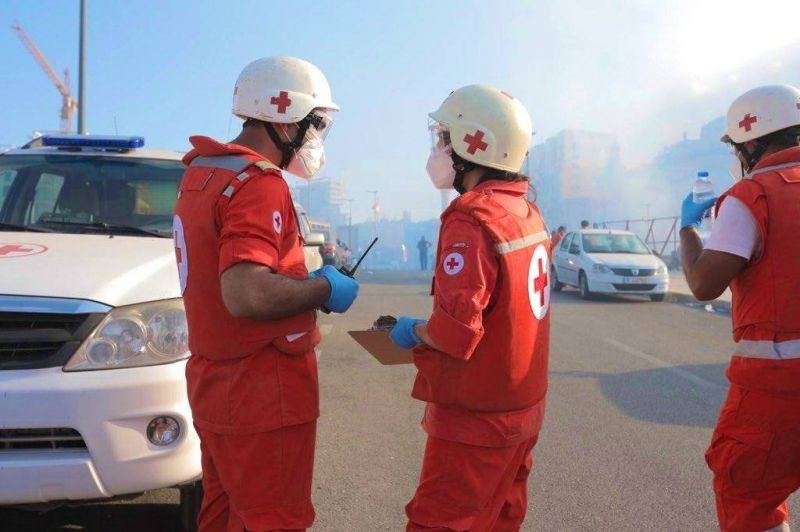
Staff and volunteers from Lebanese Red Cross providing assistance to people injured during the Tayyouneh clashes in Beirut on Oct.14, 2021. (Credits: IFRC Facebook)
BEIRUT – Amid multiple emergencies occurring in Lebanon, many have “struggled to purchase basic necessities and access basic health care,” a newly released report by the International Federation of Red Cross and Red Crescent Societies (IFRC) found.
The new study presents a worldwide picture, with a particular emphasis on 10 countries: Afghanistan, Colombia, El Salvador, Iraq, Kenya, Lebanon, the Philippines, Spain, South Africa, and Turkey.
The report noted that “it may well be impossible to detect the specific socioeconomic impacts of the COVID-19 pandemic in Lebanon against the backdrop of the country’s other rolling crises,” but pointed out that the other crises also exacerbated the pandemic.
For instance, many people in Lebanon were “sheltering in close proximity” after being displaced from their homes in the immediate aftermath of the Beirut post-explosion, creating “the ideal conditions for spreading COVID-19,” the report noted.
Furthermore, it added, “hospitals were damaged, including a dedicated COVID-19 facility. These factors promoted the spread of the coronavirus, leading to a spike of COVID-19 cases that further stressed the city’s health infrastructure.”
According to the study, women around the world had more monetary consequences as a result of the pandemic, were at higher risk of COVID-19 owing to caring obligations, were more exposed to sexual and gender-based violence, and suffered greater mental health impacts than males. Poverty rates increased in cities, often faster than in rural regions. During the epidemic, migrants and refugees were more likely to lose their employment or have their hours shortened, and they were mostly ignored by institutional protection and safety procedures.
According to a previous study by the IFRC, 86 percent of respondents reported the Beirut blast had not affected their ability or willingness to comply with prevention measures.
But the qualitative component of the study suggested that people did not always have the resources to be able to comply with measures such as mask-wearing, hand washing, and staying at home, while, the psychological impact of the Beirut blast caused people to change their priorities and worry less about COVID-19.